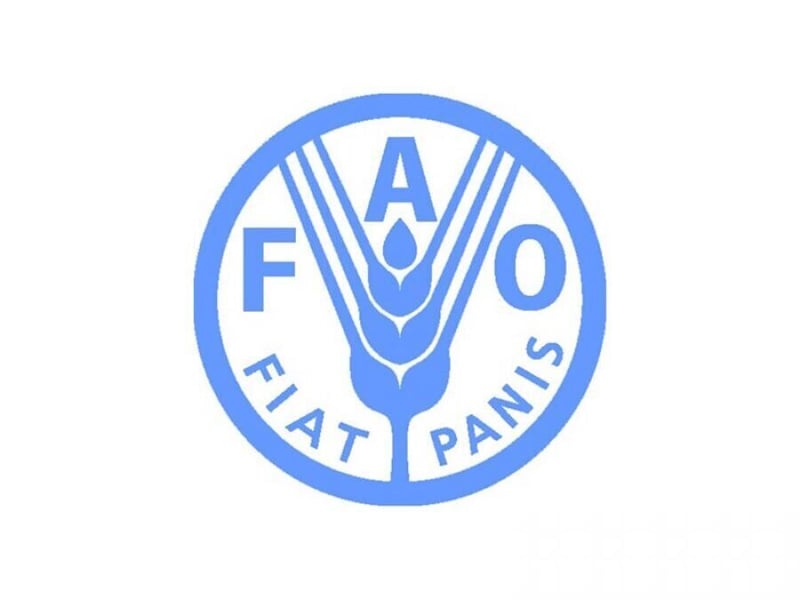Legislators in Africa address food security and nutrition challenges
Written by: MyPressportal Team Save to Instapaper
This follows a Technical Cooperation Project (TCP) signed between FAO and Pan Africa Parliament titled “Strengthening capacities of Parliamentarians in Africa for an enabling environment for Food Security and Nutrition”
MIDRAND, South Africa, May 14, 2018/ -- The Food and Agriculture Organization of the United Nations (FAO) is strengthening the capacity of Africa Legislators to address food security and nutrition challenges on the continent. This follows a Technical Cooperation Project (TCP) signed between FAO and Pan Africa Parliament titled “Strengthening capacities of Parliamentarians in Africa for an enabling environment for Food Security and Nutrition”, last October 2017. Various stakeholders, including Members of the Pan-African Parliamentary Alliance for Food Security and Nutrition (PAPA – FSN) and a delegation from the FAO gathered in Midrand, South Africa for a Project Inception Workshop on 12 May 2018. Also in attendance were Government representatives from the four project pilot countries of the African Union (AU), namely Cameroon, Madagascar, Sierra Leone and Uganda.Overall, it is envisaged that the TCP project would strengthen the capacities of the members of Pan-African Parliament to position food security and nutrition at the highest levels of the political and legislative agendas. The project, with funding of USD350, 000, started in October 2017 and is expected to end October 2019.Stakeholders commits to ending hunger and malnutrition Despite the right to adequate food explicitly documented in Africa, the staggering hunger and malnutrition figures demand structural reforms to create the enabling environment for food security and nutrition (FSN) including specific policies and legislation.The region is affected by the multiple burden of malnutrition and is not on course to meet most of the World Health Assembly (WHA) Nutrition targets for the next decade, even though for some countries the prospects are better than for others. African Leaders in 2014, through the Malabo Declaration and its implementation strategy and roadmap, committed themselves to reducing stunting to below 10% in Africa and underweight in children under 5-years- old to below 5% by 2025, with the aim of eliminating hunger in Africa in the next decade. The Africa Regional Nutrition Strategy (ARNS) 2015-2025 outlines the specific role of the African Union Commission (AUC) in the elimination of hunger and malnutrition.In his opening remarks, Lewis Hove, FAO Country Representative for South Africa, said, “Evidence has shown that food security and nutrition policies and frameworks that are anchored in legislation are more effective and sustainable.”Parliamentarians are therefore critical partners in the fight to eradicate poverty and malnutrition given their legislative, budgetary and policy oversight roles, among others.About the ProjectIn October 2017, Food and Agriculture Organisation (FAO)-PAP Dialogue was held after the formalization of the Technical Cooperation Program (TCP) by representatives from the PAP, PAPA-FSN, and FAO in October 2017. Under the Agreement, the FAO will provide technical assistance to the Pan-African Parliament (PAP), upon request from the AU/DREA, for the execution of the Technical Cooperation Project entitled “Strengthening Capacities of Parliamentarians in Africa for an Enabling Environment for Food Security and Nutrition including Right to Adequate Food”. The TCP is designed to enhance the capacities of Parliamentarians to prioritize the eradication of malnutrition and elimination of all forms of hunger on the continent.Additionally, it seeks to reinforce consensus on the importance of addressing the structural challenges to achieving food security and nutrition through a human rights based approach, and strengthen national capacities to create the enabling legal and institutional environment for improved food security and nutrition.The project supports FAO Strategic Objective 1: Contribute to the Eradication of Hunger, Food Insecurity and Malnutrition, and Regional Initiative 1: Ending Hunger in Africa by 2025.
Distributed by APO Group on behalf of FAO Regional Office for Africa
Get new press articles by email
We submit and automate press releases distribution for a range of clients. Our platform brings in automation to 5 social media platforms with engaging hashtags. Our new platform The Pulse, allows premium PR Agencies to have access to our newsletter subscribers.
Latest from
- 7 Business Trends Your SME Can Leverage In 2026
- Sadilar Amplifies Visibility And Impact During Conference Season
- Future-ready Logistics- 5 Shifts TO Watch In 2026 (SUB-saharan Africa)
- Dunlop Urges Motorists To Prioritise Tyre Safety On The Busy Joburg To Cape Town Festive Route
- Poverty Trends Report Shows National Progress But Flags Growing Challenges In Gauteng
- SDG Challenge SA 2025 Highlights The Power Of Youth Innovation In Shaping A Sustainable Future
- Experienced Industry Leader Pauli Van Dyk Named Dean Of AFDA’s Upcoming Hatfield Campus
- South Africans Keep Tourism Alive As Homegrown Travel And Local Spending Rise
- Pretoria Student Wins Global Excel Esports Competition
- AfDB Steps Up Support For Somalia With $76m Investment In Roads And Regional Integration
- Corporate Law Experts Warn Directors Of Serious Consequences For Improper Transaction Approval
- New 3% Inflation Target Begins To Shift Expectations In South African Economy
- Retail As A Development Catalyst Drives New Africa Developments’ Inclusive Growth Strategy
- Collaborative SEF Model Shows How Civil Society And State Can Rebuild Economic Trust
- Shumani Accelerates Industrial Growth With Bheka Forklifts And New Equipment Plans For 2026
The Pulse Latest Articles
- Education Is The Frontline Of Inequality, Business Must Show Up (December 11, 2025)
- When The Purple Profile Pictures Fade, The Real Work Begins (December 11, 2025)
- Dear Santa, Please Skip The Socks This Year (December 10, 2025)
- Brandtech+ Has 100 Global Creative Roles For South African Talent (December 9, 2025)
- The Woman Behind Bertie: Michelle’s Journey To Cape Town’s Beloved Mobile Café (December 9, 2025)
